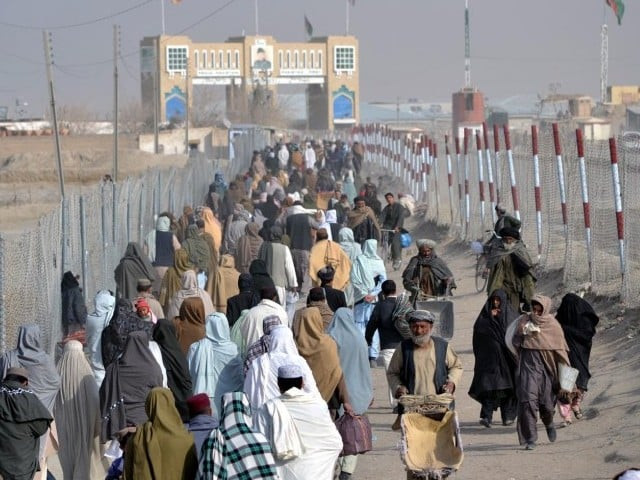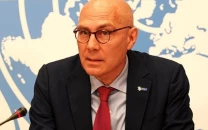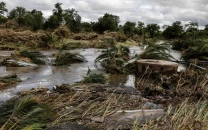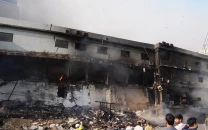Number of Afghan refugees returning home from Pakistan surges: UNHCR
More than 139,000 Afghans have returned from Pakistan since the start of the year

Many refugees said that they were going to Afghanistan because of alleged harassment in Pakistan after the deadly Taliban attack on a school in Peshawar last December. PHOTO: INP
More than 139,000 Afghans have returned from Pakistan since the start of the year, many saying they did so because of alleged harassment after the deadly Pakistani Taliban attack on a school in Peshawar last December.
Pakistani authorities, long accused of not being tough enough on extremists, pointed the finger of blame at neighbouring Afghanistan, suggesting it was not doing enough to catch Pakistani Taliban commanders hiding on its territory.
Many of the Afghan refugees said they had to return to their homeland because the situation in Pakistan had become too difficult, though some were unable to reach their homes in areas affected by fighting.
There are 1.5 million Afghan refugees registered in Pakistan and a further 1.3 million are estimated to be living there undocumented.
"In today's situation where the fighting is spreading and increasing across the country, many returning refugees become displaced in Afghanistan," UNHCR spokesperson Mans Nyberg told the Thomson Reuters Foundation by phone from Afghanistan.
"They may not be able to go back their home village so they choose to go to a secure place, which is usually a city or a larger town somewhere. That happens in many cases."
Nyberg said the number of returnees fell sharply during Ramazan, which began in Pakistan on June 17, but the UNHCR expected it to pick up after the holy month ended.
Many of those crossing the border were born in Pakistan and were going to Afghanistan for the first time, he said.
"Many of them are the second or third generation who have never seen Afghanistan, they may never have come here for visits, so it's a completely new situation for the young returnees," Nyberg said.
"That's a cultural challenge. They have relatives and family here, but for many it's basically a foreign country."
Nyberg said the UNHCR was concerned that the plight of Afghan refugees had been overshadowed by other emergencies such as those in Iraq, Syria and South Sudan.
"Afghanistan is still the largest protracted refugee situation in the world," Nyberg said. "It's a concern that the world is forgetting about Afghan refugees, and donors are turning their attention elsewhere."
The United Nations has received 44 per cent of the $405 million it sought for the 2015 response plan for Afghanistan.
"We never have enough (money), but it's particularly dire right now because of the ongoing emergencies that are eating up money that is coming in," Nyberg said. "It's a crisis."



















COMMENTS
Comments are moderated and generally will be posted if they are on-topic and not abusive.
For more information, please see our Comments FAQ